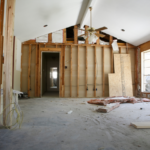Today there are approximately 44 million renters across the country. If you are among the many property owners now renting out your house, condominium, or apartment building, you probably know you should have landlord insurance to protect your assets.
But . . . do you know if landlord insurance covers tenant damage? The answer is: not likely.
Landlord insurance is designed to protect owners.
Although policies vary, landlord insurance is designed to protect an owner’s building, complex, and other structures (e.g., garages) as well as the walls, floors, and ceilings inside the rentals from damage that results from risks, such as:
- Fire
- Storms (e.g., wind, hail, snow)
- Lightning
- Vandalism
- Explosion
- Floods (from pipes)
- Smoke
- Theft
Landlord insurance can also pay owners for:
- Property damage to personal items kept on the premises, such as: lawn mowers, snow blowers, furniture, etc.
- Lost or interrupted rental income, say, if a unit becomes unlivable and you can’t lease it until it has been fixed.
- Possible lawsuits if someone sues when they get injured on your property.
- Equipment breakdown coverage, but only if you have added this specific option to your policy.
Landlord insurance does not cover damage to tenant’s belongings.
So, if a tenant’s TV is stolen or their computer is ruined when a broken pipe in the ceiling floods the living room, landlord insurance would not pay to replace those items.
Wait, there’s more.
Landlord insurance does not cover damage that a tenant causes.
That is whether it’s done deliberately (e.g., punches a hole in the wall) or as a result of normal usage or wear-and-tear (e.g., worn out carpet). And if your tenant happens to bring home bed bugs, or causes other infestations because of dirty or irresponsible habits, your landlord insurance won’t cover the cost to get rid of them. (But you can charge for the cost of extermination by taking it out of your tenants security deposit.)
Landlord insurance may cover accidents.
Some landlord insurance policies may cover unintentional damage caused by your tenants — including accidental fires — but if your tenant steals something you own or vandalizes your property, landlord insurance typically does not cover the cost to replace or repair those items.
What can you do
The good news is that while landlord insurance will not cover instances of most tenant damage, you can do two things to add a layer of protection. First, require renters to pay a security deposit upfront when they sign a lease with you. And, second, have them show proof of renters insurance. In addition to protecting your property with landlord insurance, both of these steps can give you some peace of mind in case something unexpected happens.
Contact our Guided Team for more information or to get a free quote.










